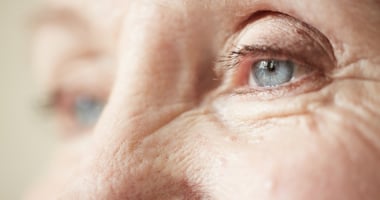A group of Yale researchers has concluded that the use of serotonin reuptake inhibitors (SRIs) in...
Novel Compound Found to Be Safe, Effective at Reducing Symptoms of MDD
 |
Previous animal studies have suggested that NSI-189, a benzylpiperizine-aminopyridine, stimulates neurogenesis in the hippocampus. In the current study, a group of researchers led by Maurizio Fava, M.D., director of the Clinical Research Program at Massachusetts General Hospital, evaluated the effectiveness, safety, and tolerability of NSI-189 in a phase 1B clinical trial that included 24 patients with recurring symptoms of MDD.
Patients were randomly divided into three cohorts, with six patients in each cohort receiving active drug (40 mg doses once, twice, or three times daily) while the remaining two patients received placebo. After 28 days of treatment, which was conducted in an inpatient setting, patients were followed for an additional 56 days.
The Symptoms of Depression Questionnaire (SDQ), Montgomery–Åsberg Depression Rating Scale (MADRS), Cognitive Global Impression-Improvement (CGI-I), and the Massachusetts General Hospital (MGH) Cognitive, and Physical Functioning Questionnaire (CPFQ) were used to assess participants’ depressive symptoms throughout the trial.
The authors found NSI-189 to be well tolerated with significantly greater antidepressant effects than placebo in two (SDQ and CPFQ) of four depression outcome measures. The most common adverse events associated with NSI-189 use included headache, dizziness, and somnolence.
“The significant benefits on the SDQ and the trends for improvement on the MADRS and CGI-I were maintained steadily beyond the acute phase of the double-blind administration and were still present at day 84, with the exception perhaps of the 40 mg [once-daily] regimen,” the study author wrote. “This finding is in sharp contrast to the rapid return of symptoms typically observed following discontinuation of standard antidepressants.”
The study authors added that while the sample size of study was small, “each cohort [treated with NSI-189] seemed to have consistently shown an antidepressant effect and the overall effect sizes were quite robust.”
Fava, in press statement, said that if the efficacy of NSI-189 is confirmed in larger trials, it “could be an important new option for patients not helped by currently available medications.”
To read more about non-SSRI therapies currently in the pipeline to treat depression, see Psychiatric News article “Ten Non-SSRI Antidepressant Drugs Bring Hope Psychotropic Pipeline.”
(Image: Nina Buday/Shutterstock)





